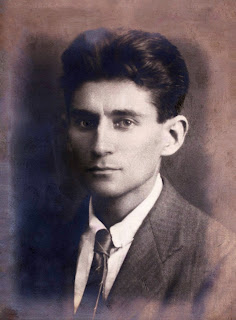In an earlier post I provided a list of 10 economic statements from famous economists. For this post I attempted to create a list of macroeconomic events that can be used to analyze each statement. I'm aware there are many confounding variables impacting these events, but I believe this list is a good starting point for compiling potentially useful macroeconomic experiments.
1. John Maynard Keynes (1883-1946):
"The right remedy for the trade cycle is not to be found in abolishing booms and thus keeping us permanently in a semi-slump; but in abolishing slumps [with fiscal and monetary policy] and thus keeping us permanently in a quasi-boom." (The General Theory of Employment, Interest and Money, 1936)
Key variable: GDP growth
Fiscal policy
- United States' New Deal (1933-1938)
- United States in World War II (1939-1949)
- United States' American Recovery and Reinvestment Act (2009)
- Greece austerity (2010-now)
- Federal Reserve quantitative easing (2008-2014)
- Bank of Japan quantitative easing (2001-now)
2. Adam Smith (1723-1790):
"By preferring the support of domestic to that of foreign industry, he intends only his own security; and by directing that industry in such a manner as its produce may be of the greatest value, he intends only his own gain, and he is in this, as in many other cases, led by an invisible hand to promote an end which was no part of his intention." (The Wealth of Nations, 1776)
Key variable: GDP growth
Key variable: GDP growth
- Union of Soviet Socialist Republics communism (1922-1991)
- United States free trade (1776-now)
3. Milton Friedman (1912-2006):
Key variable: GDP growth
- United States tax policy (1932-1988)
- Sweden tax policy (1939-1988)
4. Joseph Schumpeter (1883-1950):
"The innovation is hazardous, impossible for most producers. But if someone establishes a business having regard to this source of supply, and everything goes well, then he can produce a unit of product more cheaply, while at first the existing prices substantially continue to exist." (The Theory of Economic Development, 1934)
Key variable: comparison of new versus replaced businesses
- Walmart (1962-now)
- Microsoft (1975-now)
- Amazon (1994-now)
5. David Ricardo (1772-1823):
Key variable: GDP growth
- World Trade Organization and China (2001-now)
- Smoot-Hawley Tariff Act (1930)
- North American Free Trade Agreement (1994-now)
6. Friedrich Hayek (1899-1992):
"The misconception that costs determined prices prevented economists for a long time from recognizing that it was prices which operated as the indispensable signals telling producers what costs it was worth expending on the production of the various commodities and services, and not the other way around." (Coping with Ignorance, 1978)
Key variable: price of goods and services
- It's hard to think of what specific event can help test this statement. Maybe a good example could be the event that the popularity of an artist takes off and the price of their paintings greatly exceeds the cost of production.
7. John Kenneth Galbraith (1908-2006):
"In recent times no problem has been more puzzling to thoughtful people than why, in a troubled world, we make such poor use of our affluence." (The Affluent Society, 1958)
- I can't really think of any experiments to use for this statement.
8. Robert Owen (1771-1858):
"The advantage of pure, and the disadvantage of impure air are experienced each time we breathe, and all who understand the causes of disease know that an impure Atmosphere is most unfavourable to the enjoyment of health, and an efficient cause to shorten human existence within the natural life of man. It is therefore most desirable that decisive measures should be devised and generally adopted to ensure to all a pure atmosphere, in which to live during their lives." (The Book of the New Moral World, 1836)
Key variable: quality of life indicators
- United States quality of life
- Sweden quality of life
9. Robert Thomas Malthus (1766-1834):
"The employment of the poor in roads and public works, and a tendency among landlords and persons of property to build, to improve and beautify their grounds, and to employ workmen and menial servants, are the means most within our power and most directly calculated to remedy the evils arising from that disturbance in the balance of produce and consumption." (An Essay on the Principle of Population 2nd Edition, 1836)
Key variable: unemployment
- Europe's Marshall Plan (1948-1951)
- United States' New Deal (1933-1938)
10. Karl Marx (1818-1883):
"The worker's existence is thus brought under the same condition as the existence of every other commodity. The worker has become a commodity, and it is a bit of luck for him if he can find a buyer... " (Paris Manuscripts , 1844)
Key variable: unemployment
Key variable: unemployment
- Industrialization (1800-1900)
- Computerization (1900-now)



















